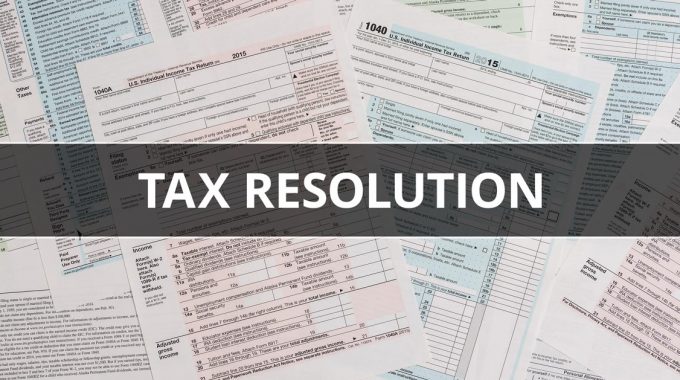
by Renee Lawson | Mar 24, 2025 | Tax Preparation, Tax Resolution
Dealing with the IRS can feel overwhelming, especially if you owe more than you can pay upfront. Thankfully, the IRS offers payment plans to help taxpayers settle their debts over time. By understanding the process and knowing how to negotiate effectively, you can take control of your tax situation and reduce stress. At Action Tax Relief, we specialize in helping clients like you navigate the IRS payment plan process. Here’s a step-by-step guide to get you started.
Step 1: Understand Your Tax Debt
Before you can negotiate a payment plan, you need to have a clear understanding of your tax liability. Here’s what to do:
- Review IRS Notices: Carefully read all correspondence from the IRS to determine how much you owe, including penalties and interest.
- Confirm the Amount: Cross-check the IRS’s numbers with your own records to ensure there are no discrepancies.
- Know Your Deadlines: The IRS provides deadlines for resolving your tax debt, so act quickly to avoid additional penalties.
Step 2: Explore Your Payment Plan Options
The IRS offers several payment plan options depending on your financial situation and the amount you owe. These include:
- Short-Term Payment Plan: For debts you can pay off within 180 days.
- Long-Term Installment Agreement: For larger debts that require more time to repay.
- Direct Debit Installment Agreement: Payments are automatically withdrawn from your bank account, which can simplify the process and reduce the risk of default.
Each option has its own eligibility criteria, fees, and benefits. Consulting with a tax resolution professional can help you determine which plan is best for your needs.
Step 3: Gather Necessary Documents
To negotiate effectively, you’ll need to provide the IRS with detailed financial information. Be prepared to gather the following:
- Income Statements: Pay stubs, 1099s, or other proof of income.
- Expense Documentation: Monthly bills, rent or mortgage statements, utility bills, and other necessary expenses.
- Asset Information: Details about your bank accounts, retirement accounts, and property.
- Tax Returns: Ensure your past tax returns are filed, as the IRS typically requires this before approving a payment plan.
Step 4: Determine What You Can Afford
Before negotiating, assess your finances to determine how much you can reasonably afford to pay each month. The IRS will require you to submit Form 433-A or 433-F, which details your income, expenses, and assets. Be realistic about your budget to avoid defaulting on your payments.
Step 5: Contact the IRS
Once you’re prepared, it’s time to contact the IRS to initiate the negotiation process. You can do this by:
- Calling the IRS: Use the phone number provided on your IRS notice.
- Applying Online: For certain payment plans, you can apply directly on the IRS website.
- Submitting Forms by Mail: If required, complete and mail the appropriate forms to the IRS.
While it’s possible to handle this on your own, working with a professional can make the process smoother and increase your chances of approval.
Step 6: Negotiate Terms
During your discussion with the IRS, be prepared to negotiate terms that work for both parties. Key points to consider include:
- Monthly Payment Amount: Offer an amount you can afford, based on your financial analysis.
- Payment Timeline: Discuss how long you’ll need to pay off the debt.
- Interest and Penalties: In some cases, the IRS may reduce or waive penalties if you demonstrate financial hardship.
Be polite and honest throughout the negotiation process. The IRS is more likely to work with you if you’re cooperative and transparent.
Step 7: Finalize the Agreement
Once you’ve agreed on a payment plan, the IRS will provide written confirmation of the terms. Review this document carefully and keep a copy for your records. It’s crucial to:
- Make Payments on Time: Missing payments can void the agreement and result in enforced collection actions.
- Monitor Your Account: Regularly check your account to ensure payments are applied correctly.
- Communicate Changes: If your financial situation changes, notify the IRS immediately to discuss modifying your payment plan.
Step 8: Stay Compliant
To maintain your payment plan, you must stay compliant with all IRS requirements. This includes filing future tax returns on time and paying any new taxes owed. Falling out of compliance can result in the termination of your agreement.
Common Challenges and How to Overcome Them
Negotiating with the IRS isn’t always straightforward. Here are some common challenges and how to address them:
- High Monthly Payments: If the IRS proposes a payment amount you can’t afford, provide additional financial documentation to support your case.
- Rejected Applications: If your payment plan request is denied, work with a tax resolution expert to explore alternative solutions.
- Enforced Collections: If the IRS has already initiated wage garnishments or bank levies, act quickly to negotiate a payment plan and stop these actions.
Conclusion
Negotiating a payment plan with the IRS can feel daunting, but it’s a manageable process if you take the right steps. By understanding your options, gathering the necessary documentation, and approaching the IRS with a clear plan, you can resolve your tax debt and regain control of your finances.
At Action Tax Relief, we’re here to help every step of the way. Whether you’re starting the negotiation process or need assistance with an existing plan, our team has the knowledge and expertise to ensure a successful outcome. Call us at 937-268-2737 or visit www.actiontaxrelief.com to get started today.

by Renee Lawson | Mar 10, 2025 | Tax Preparation, Tax Resolution
An IRS tax lien is one of the most serious financial consequences of unpaid taxes. It can affect your credit, limit your financial freedom, and create a sense of uncertainty about your future. If you’ve received notice of a tax lien or are concerned about the possibility, understanding the process and your options is crucial. At Action Tax Relief, we help taxpayers navigate complex situations like these and find solutions that work for their unique circumstances.
What Is an IRS Tax Lien?
A tax lien is the government’s legal claim against your property—including real estate, personal belongings, and financial assets—when you fail to pay a tax debt. The lien ensures the IRS gets first priority over other creditors if you sell or refinance your assets.
How Tax Liens Work
- Notice and Demand for Payment: The IRS will send you a bill outlining the amount owed. This is the first step in the lien process.
- Failure to Pay: If you don’t pay the tax debt by the deadline, the IRS files a public document called a Notice of Federal Tax Lien.
- Impact on Assets: The lien attaches to all your current and future assets, significantly affecting your financial stability.
How a Tax Lien Affects You
The repercussions of a tax lien can be far-reaching:
- Credit Score Damage: Tax liens can appear on your credit report, making it harder to secure loans or credit lines.
- Asset Restrictions: Selling or refinancing property becomes difficult, as the lien ensures the IRS is paid first.
- Business Impacts: If you own a business, the lien may attach to its assets, jeopardizing operations.
Ignoring a tax lien will not make it disappear. In fact, the longer you wait to address it, the worse the consequences become.
How to Remove an IRS Tax Lien
Removing a tax lien is possible, but it requires understanding your options and acting decisively. Here are some common ways to address a lien:
1. Pay the Tax Debt in Full
The most straightforward way to remove a lien is to pay off your tax debt completely. Once the debt is paid, the IRS will release the lien within 30 days. While this may not be feasible for everyone, it’s the quickest route to resolution.
2. Set Up an Installment Agreement
If you can’t pay the debt in full, an installment agreement allows you to make monthly payments over time. While the lien remains in place until the debt is paid off, the agreement prevents further collection actions.
3. Apply for an Offer in Compromise (OIC)
An Offer in Compromise lets you settle your tax debt for less than you owe. If the IRS accepts your OIC, they will release the lien once the agreed-upon amount is paid. Keep in mind that not everyone qualifies for this program.
4. Request a Discharge of Property
If you need to sell or refinance a specific asset, you can request a discharge of property from the lien. This removes the lien from that particular asset, allowing the transaction to proceed.
5. Subordination
Subordination doesn’t remove the lien but allows other creditors to take priority over the IRS. This can make it easier to secure a loan or mortgage.
6. Withdrawal of the Lien
In some cases, you may qualify for a withdrawal, which removes the public Notice of Federal Tax Lien. This option is available if you’ve paid your debt in full or are on a direct debit installment agreement.
How to Prevent a Tax Lien
The best way to deal with a tax lien is to prevent one from being filed in the first place. Here are some tips:
- File Your Taxes on Time: Even if you can’t pay, filing on time helps avoid additional penalties.
- Communicate with the IRS: If you’re struggling to pay, reach out to the IRS to discuss payment options.
- Seek Professional Help: Working with a tax resolution expert can help you address your debt before it escalates.
Why Professional Help Matters
Navigating tax liens and IRS procedures can be overwhelming. A tax resolution professional has the experience and knowledge to:
- Negotiate with the IRS: They can help you secure favorable terms for payment plans or settlements.
- Protect Your Assets: An expert can advise on the best strategies to prevent asset seizures or other enforcement actions.
- Save Time and Stress: Dealing with the IRS can be time-consuming and frustrating. Let a professional handle the process for you.
Common Myths About IRS Tax Liens
There’s a lot of misinformation about tax liens, which can lead to unnecessary panic or inaction. Let’s debunk some common myths:
- Myth: A Tax Lien Means You’ll Lose Your Property Immediately. Truth: A lien is a claim, not a seizure. While it’s serious, you won’t lose your property unless the IRS enforces the lien through a levy.
- Myth: You Can’t Do Anything Once a Lien Is Filed. Truth: There are several ways to address and even remove a lien, as discussed above.
- Myth: Tax Liens Disappear Over Time. Truth: Liens remain in place until the debt is paid or the statute of limitations expires, which can take up to 10 years or more.
Take Action Today
If you’re dealing with an IRS tax lien or want to prevent one, the time to act is now. Ignoring the issue will only make it worse, but with the right help, you can resolve your tax problems and move forward with confidence.
At Action Tax Relief, we’re here to provide the guidance and support you need. Call us at 937-268-2737 or visit www.ActionTaxRelief.com to schedule a free consultation. Let us help you take control of your tax situation and protect what matters most.

by Renee Lawson | Jan 27, 2025 | Tax Preparation, Tax Resolution
Dealing with tax debt can be a stressful experience, especially when the IRS begins to take aggressive collection actions. One of the most concerning possibilities is the seizure of your assets.
If you owe significant back taxes and have not made arrangements to pay, you may wonder: Can the IRS really take my property?
The answer is yes, but there are safeguards and options available to help you avoid this situation. In this article, we’ll explain how asset seizure works, the process the IRS follows, and the steps you can take to protect your assets and resolve your tax debt before it escalates to this point.
Understanding IRS Asset Seizure
The IRS has the legal right to seize property in order to satisfy unpaid tax debt, but they do not do so lightly. Asset seizure is one of the last steps the IRS takes after other collection efforts have failed.
Typically, the IRS will first issue a series of notices demanding payment. If you fail to respond or make arrangements to pay, then they may begin more aggressive actions, such as filing liens, garnishing wages, or levying your assets.
Types of Assets the IRS Can Seize
The IRS can seize various types of assets, including:
- Bank Accounts
If you have unpaid taxes and your case reaches the point of asset seizure, the IRS can levy your bank accounts, meaning they can take money directly from your accounts to cover your debt. This can leave you with little access to funds for everyday expenses.
- Wages
The IRS can also garnish your wages, taking a portion of your paycheck directly from your employer to satisfy your tax debt. This can significantly impact your ability to meet your financial obligations.
- Real Estate (Homes)
In some cases, the IRS can place a tax lien on your property, which means they have a legal claim on your property until your debt is paid. If you continue to ignore the debt, the IRS may initiate the seizure of your home or other real estate assets.
- Vehicles
The IRS can seize vehicles, including cars, trucks, and boats, to cover unpaid taxes. After seizing the vehicle, they will sell it at auction to recoup some of the debt.
- Other Personal Property
The IRS may also seize other valuable personal property, such as jewelry, collectibles, or business assets, to help satisfy the tax debt.
How the IRS Seizes Assets
Asset seizure is not an immediate process. The IRS must follow specific procedures before seizing any property. Here’s a generic outline of the typical process:
- Notice of Debt
If you owe taxes and have not made arrangements to pay, the IRS will send you a series of notices warning you of the outstanding debt. These notices typically start with a simple request for payment but escalate to more formal warnings, such as the Final Notice of Intent to Levy. If you receive this notice, the IRS is informing you that they intend to take collection actions.
- Levy and Seizure
If you do not respond or pay the taxes owed, the IRS may proceed with a levy, which allows them to seize assets. The IRS is required to send a final notice of levy at least 30 days before they take action. This is when the IRS will begin contacting your bank or employer to start garnishing your wages or bank accounts.
- Seizing Property
If the IRS is unable to recover sufficient funds through levies or garnishments, they may move to seize your assets. Before taking property, the IRS will usually notify you in writing. They will also send an official notice of seizure if they plan to auction your property.
- Auctioning Your Property
After the IRS seizes your assets, they will sell them at an auction to recover the unpaid tax debt. The proceeds from the sale are used to cover the amount you owe. If the sale exceeds your tax debt, you may be entitled to a refund.
How to Prevent IRS Asset Seizure
The risk of asset seizure can be avoided by addressing your tax debt before it reaches this stage. Here are steps you can take to protect your property and resolve your tax issues:
- File and Pay on Time
The best way to avoid asset seizure is to file your tax returns on time and pay the taxes you owe. If you are unable to pay the full amount, the IRS offers options like installment agreements and Offer in Compromise (OIC) to make your debt more manageable.
- Set Up a Payment Plan
If you cannot afford to pay your tax debt all at once, you can set up a payment plan with the IRS. An installment agreement allows you to make monthly payments toward your tax debt over time. This arrangement can help you avoid collection actions, including asset seizure, as long as you keep up with your payments.
- Negotiate an Offer in Compromise
If you owe a substantial amount of taxes and cannot pay in full, an Offer in Compromise (OIC) might be an option. This program allows you to settle your tax debt for less than the full amount owed. However, qualifying for an OIC can be challenging, and the IRS carefully reviews your financial situation to determine if you qualify. A tax relief professional can help you navigate this process and increase your chances of success.
- File for Currently Not Collectible Status
If you are facing financial hardship and cannot afford to pay your taxes, you may qualify for Currently Not Collectible (CNC) status. This status temporarily halts IRS collection actions, including asset seizures. While your debt remains, CNC status gives you a break and allows you to improve your financial situation.
- Appeal the Seizure
If the IRS has already issued a notice of seizure, you have the right to appeal. If you can demonstrate that the seizure would cause undue financial hardship or that you were not properly notified, you may be able to halt the seizure process. Working with a tax relief professional can help ensure that your appeal is properly filed.
How a Tax Relief Professional Can Help
If you are facing the threat of IRS asset seizure, a tax relief professional can be your advocate in negotiating with the IRS and finding a solution. Here’s how a tax resolution expert can help:
- Negotiation: A tax relief professional can help you negotiate a payment plan or offer in compromise with the IRS, preventing the need for asset seizure.
- Representation: They can represent you in IRS hearings or appeals and communicate with the IRS on your behalf, taking the stress out of the process.
- Guidance: Tax resolution professionals will guide you through the steps to apply for Currently Not Collectible status or to challenge the seizure if necessary.
- Prevention: A tax relief expert can help you take the necessary steps to resolve your debt early, reducing the chances of escalation to asset seizure.
Take Action Today
If you’re at risk of losing your assets to the IRS, it’s important to take immediate action. Ignoring the situation will only make things worse, leading to asset seizure and financial hardship.
By working with tax relief professionals like the ones at Action Tax Relief, you can take steps to resolve your tax debt, protect your property, and avoid further collection actions.
Reach out to Action Tax Relief today at 937-268-2737 to discuss your options and begin the process of safeguarding your assets and your financial future.

by Renee Lawson | Jan 6, 2025 | Tax Preparation, Tax Resolution
The new year is here, and with it comes a fresh start for everyone—especially if you’re facing tax debt. If you owe $10,000 or more in back taxes, the beginning of the year is a great time to take a step back, assess your tax situation, and develop a plan to resolve your debt.
Ignoring tax issues may seem like an easier option, but the longer you wait, the more penalties and interest can add up. In this article, we’ll explain how starting the year with a clear plan in place can help you regain control of your finances and reduce the chances of your tax debt escalating.
Assess Your Current Tax Situation
If you’re carrying tax debt into the new year, the first step is to fully understand the extent of the debt. This includes knowing how much exactly you owe, any interest or penalties that have accumulated, and whether any collection actions have been taken against you by the IRS. The IRS may have already issued you warnings or collection notices, or they may be gearing up to take more aggressive steps if you don’t take any action.
Start by gathering all of your tax documents, including any IRS notices you’ve received, tax returns from previous years, and any statements regarding unpaid taxes. A clear understanding of your current tax status will help you know where you stand and what needs to be done.
Address Your Tax Debt Early
One of the most common mistakes taxpayers make is waiting too long to address their tax debt. The longer you ignore the issue, the higher the chances are of IRS collection actions like wage garnishments, bank levies, or tax liens.
These actions can significantly damage your financial situation and credit score, making it even harder to get back on track. Now that it’s a new year, you have a fresh opportunity to take control!
By addressing your tax debt early in the year, you give yourself more time to work with the IRS on finding a manageable solution. This could include setting up a payment plan, requesting penalty relief, or negotiating a settlement through programs like the Offer in Compromise (OIC).
Explore Your Tax Resolution Options
When it comes to resolving tax debt, there are several options available depending on your financial situation. Here are a few of the most common tax resolution options:
1. Installment Agreements
If you can’t pay your tax debt in full right away, the IRS allows you to set up an installment agreement. This is a monthly payment plan that spreads out the cost of your debt over time, often making it more manageable. The IRS offers different types of payment plans, including short-term and long-term options, depending on how much you owe and your ability to pay.
2. Offer in Compromise (OIC)
If you owe a substantial amount in taxes and are unable to pay it all, you may be eligible for an Offer in Compromise. This program allows you to settle your tax debt for less than the total amount owed, but qualifying for it can be challenging. The IRS looks at your income, expenses, and assets to determine whether you’re eligible. A tax resolution professional can help you assess your eligibility and guide you through the application process.
3. Penalty Abatement
In some cases, the IRS will reduce or eliminate penalties if there is reasonable cause for your failure to pay or file your taxes. If you can show that your inability to pay was due to circumstances beyond your control, such as medical emergencies or a job loss, you may be able to have penalties reduced or waived. A tax relief professional can help you present your case to the IRS and increase your chances of having penalties removed.
4. Currently Not Collectible Status
If you are facing significant financial hardship, the IRS may place your account in Currently Not Collectible (CNC) status. This means that the IRS will temporarily stop all collection activities, such as garnishments or levies, for a set period. While this status does not completely eliminate your debt, it provides some immediate relief and gives you a little more time to stabilize your finances before addressing the debt again.
Seek Professional Help to Navigate the Process
The process to resolving tax debt can be complicated, and dealing with the IRS on your own can be overwhelming. Tax relief professionals like the ones at Action Tax Relief can help you navigate the various programs available to you and negotiate with the IRS on your behalf. They can also provide expert advice on the best strategy based on your unique financial situation.
Since they handle all the communication with the IRS, you don’t have to deal with the stress of trying to manage the situation alone. They will help ensure that you meet all deadlines, file all necessary paperwork, and protect your rights as a taxpayer.
Planning for the Future
Once your current tax debt is resolved, it’s important to implement strategies to avoid future tax problems. A tax relief professional can help you with tax planning to ensure you stay on track with your obligations moving forward. This may include budgeting for future taxes, keeping better records of your income and expenses, and making timely quarterly tax payments to avoid underpayment penalties.
Starting the year with a clear tax resolution plan can set you up for financial success in the months ahead. Addressing your back taxes now can reduce the stress and burden of dealing with the IRS later on, and it allows you to move forward with a clean slate.
Take Action Now
If you owe $10,000 or more in taxes, don’t wait until the IRS escalates collection actions. Start the year off right by seeking professional help to resolve your tax debt and find a manageable solution.
Tax relief professionals like the ones at Action Tax Reliefcan help you understand your options and work with the IRS to find the best outcome for your financial situation.
The sooner you take action, the sooner you can get back to focusing on your life and your business without the looming threat of IRS actions. Contact Action Tax Relief today at 937-268-2737 to discuss your options and take the first step toward resolving your tax debt.

by Renee Lawson | Dec 16, 2024 | Tax Preparation, Tax Resolution
Navigating the world of taxes can be an overly complex and overwhelming experience, especially if you find yourself in a situation where you owe back taxes or have the IRS breathing down your back.
If you’re feeling stressed or uncertain about your tax obligations, it’s crucial to know when it’s time to seek help from a tax resolution professional. Understanding the signs that indicate you need expert assistance can make a world of difference in your financial well-being.
Signs You Should Contact a Tax Resolution Professional
- Receiving IRS Notices and Letters
One of the clearest signs that it’s time to seek help is when you receive a notice or letter from the IRS. Whether it’s a demand for payment, a notice of audit, or a letter indicating discrepancies in your tax filings, it’s important not to ignore these communications. A tax resolution professional can help you understand the implications of these notices and guide you on how to respond appropriately.
If you owe $10,000 or more in back taxes, it’s time to consult with a tax resolution professional. Accumulating tax debt can lead to severe consequences, such as wage garnishments, bank levies, and even tax liens on your property. A professional can help you go over your options to manage and resolve your looming tax debt, and potentially even reduce your overall liability.
- Fear of Audits or Current Audit Procedures
The thought of an IRS audit can be a little scary (maybe a lot scary), and if you’re feeling anxious about the possibility of an audit, it may be time to reach out for assistance. If you are currently undergoing an audit, a tax resolution professional can represent you and help guide you through the entire audit process, making sure that your rights are protected and that you have the right support that you need.
- Inability to Pay Your Taxes
If you find yourself in a situation where you cannot pay your taxes in full, don’t panic. Instead, consult with a tax relief professional. They can help you understand your options, such as setting up a payment plan or applying for an Offer in Compromise, which allows you to settle your tax debt for less than the total amount owed.
- Multiple Years of Unfiled Tax Returns
Failing to file tax returns for multiple years can lead to serious consequences, including increased penalties and legal repercussions. If you’re behind on filing your returns, it’s essential to seek professional help as soon as possible. Tax resolution experts can assist you in catching up on your filings, ensuring that you comply with tax laws and minimize potential penalties.
- Stress and Anxiety Over Tax Issues
If you’re feeling overwhelmed by your tax situation, it’s a strong indication that you could benefit from professional assistance. Dealing with tax debt, notices, or audits can create significant stress, impacting your overall well-being. A tax resolution professional can help take the weight off of your shoulders, offering you peace of mind and a clear path forward.
- Lack of Knowledge about Tax Laws and Regulations
If you find tax laws confusing or feel unsure about your rights and obligations as a taxpayer, reaching out to a professional is a wise choice. Tax resolution experts have in-depth knowledge of tax laws and can provide clarity on your specific situation, helping you make informed decisions based on your needs.
How a Tax Resolution Professional Can Help
Once you’ve recognized the signs that indicate it’s time to seek help, here’s how a tax resolution professional can help you moving forward:
- Expert Negotiation: Tax relief professionals are skilled negotiators when it comes to working with the IRS and you want them on your side. They understand the intricacies of tax law and can advocate for you, aiming to secure as favorable an outcome as possible.
- Customized Solutions: Each taxpayer’s situation is unique, and having the right professionals on your team can help you develop tailored strategies based on your specific circumstances. Whether it’s negotiating a settlement or setting up a payment plan, they can provide personalized solutions to fit whatever your needs are.
- Comprehensive Support: From handling communications with the IRS to representing you during audits, tax resolution professionals are there to offer you comprehensive support throughout the entire process. You’re never alone, and their guidance alone will save you time and stress.
- Long-Term Financial Planning: Beyond immediate tax relief, these professionals can assist you in developing strategies to manage your finances and avoid future tax issues, laying the groundwork for a more secure financial future and setting you up for success.
Taking the Next Step
Recognizing the signs that it’s time to reach out to a tax resolution professional is the first step toward taking back control of your financial situation. Don’t let stress and uncertainty dictate your life – take proactive action that can pave the way to resolving the issue once and for all.
If you’re facing tax challenges, whether it’s unfiled returns, overwhelming debt, or the fear of an audit, don’t hesitate to contact our team at Action Tax Relief.
We’re here to help you navigate the complexities of tax resolution and work towards a solution that will work best for you. Your financial peace of mind is just a call away 937-268-2737.

by Renee Lawson | Dec 13, 2024 | Tax Preparation, Tax Resolution
As a 1099 worker, navigating the complexities of freelance or contract work can be both rewarding and challenging. While the flexibility of self-employment is appealing, it also comes with unique tax responsibilities that can lead to potential scrutiny from the IRS.
If you’ve received a notice from the IRS claiming you owe $10,000 or more or you are concerned about your tax obligations, contact our firm immediately for a consultation www.actiontaxrelief.com.
To help avoid potential IRS in the future, this article will explore your tax responsibilities as a 1099 worker and provide strategies to help you minimize the risk of audits.
Understanding Your Tax Responsibilities
As a 1099 worker, you are classified as self-employed, which means you have specific tax obligations that differ from traditional employees. Here are the key responsibilities you need to be aware of:
- Accurate Reporting of Income: All income earned as a 1099 worker must be reported on your tax return, regardless of how small the amount was or whether you received a 1099 form from your client. The IRS requires comprehensive reporting of all earnings, and not submitting everything can result in significant penalties that could otherwise be avoided.
- Quarterly Estimated Tax Payments: Unlike employees, taxes are not withheld from your payments as a 1099 worker. You are responsible for making estimated tax payments quarterly. Staying on top of these payments is crucial to avoid underpayment penalties and interest. This often gets overlooked, but coming up with your own system to make these payments will save you a major headache when it comes to filing your tax return.
- Detailed Record-Keeping: Maintaining meticulous records is essential for accurately reporting your income and expenses. This includes tracking your invoices, saving any and all receipts, and documenting your business-related costs. Good record-keeping not only simplifies your tax filing but also provides the supporting documentation in case of an audit.
- Deductions and Business Expenses: As a self-employed individual, you get the opportunity to deduct legitimate business expenses that can lower your taxable income. However, these deductions have to be extremely well-documented and should directly relate to your business operations. The IRS is known to closely scrutinize excessive or questionable deductions, so it’s important to stay within the bounds of what is legal.
Strategies to Minimize IRS Scrutiny
Now that you understand your tax responsibilities, here are some effective strategies to help you minimize the risk of IRS scrutiny:
- File Your Taxes Accurately and Timely: Tax day is not something most people look forward to, and many people put it off as long as they can. As a 1099 worker, it’s even more important to make sure that your tax return is accurate and submitted by the deadline. Take the time to double-check your figures to avoid any errors that could potentially lead to an audit.
- Track Your Earnings: One of the biggest red flags for IRS auditors is unreported or misreported income. Utilize accounting tools or payment platforms that help you track your earnings effectively. This practice not only aids in accurate reporting but also ensures that you have the necessary documentation readily available.
- Request 1099 Forms from Clients: If you work with multiple clients, request 1099 forms from each one. This helps you know that all your income is accounted for and provides a clear record of what you’ve earned.
- Make Timely Estimated Payments: Keep track of your quarterly estimated tax payments and ensure that they are made on time. Set reminders for yourself and put money aside periodically to help prevent any missed payments, which could lead to penalties.
- Be Aware of Common Audit Triggers: Get familiar with factors that might trigger an audit, such as large deductions relative to your income or discrepancies between what you report as income and what your clients report to the IRS. Understanding these triggers can help you avoid the common pitfalls.
- Communicate Promptly with the IRS: If you receive any notices or inquiries from the IRS, respond promptly and professionally. Ignoring their communications can lead to further complications. If you’re uncertain about how to respond, contact our office 937-268-2737 and we can help you.
Moving Forward with Confidence
As a 1099 worker, it is so important to understand your tax responsibilities and take proactive measures to avoid the IRS’s scrutiny. By staying organized, filing your taxes accurately, and being aware of common mistakes that many freelance workers make, you can reduce your risk of audits and penalties.
If you find yourself struggling with tax issues or facing IRS scrutiny, remember that you don’t have to face it alone. Tax resolution professionals like the ones at Action Tax Relief are here to help you navigate all the complexities of tax regulations and work toward a favorable resolution. Don’t hesitate to reach out to us at 937-268-2737 for support—your peace of mind is worth it.






